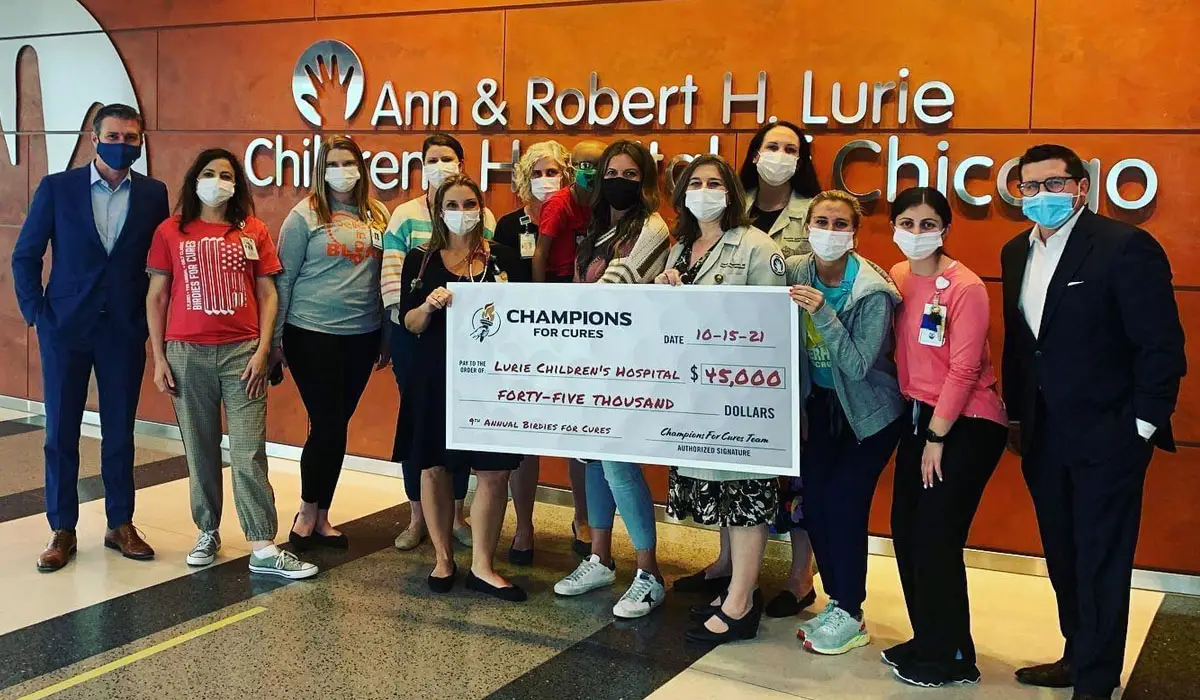
Crushing Cancer Costs: The Overwhelming Financial Burden
Key Contributors To The Overwhelming Cancer Costs In Cancer Care
Millions of people fight cancer every year, and while the fight itself is hard, the financial stress of Cancer costs that comes with it can be just as hard. Cancer can cost a lot, between medical bills and lost wages. That’s why it’s so important to learn about the costs of cancer care and look for ways to make things easier. In this blog post, we’ll talk about the costs of cancer and how we can all help people going through this hard time.
Champions For Cures knows how important it is to deal with the costs of cancer care. They are working hard to make it easier for cancer patients and their families to pay for it. Their team helps people with cancer focus on what’s most important: fighting their disease and getting the best possible outcome. They do this by advocating for policies that make it easier for people to get the care and lower the cost of treatment.
What Is Financial Toxicity?
“Financial toxicity” refers to cancer patients’ trouble with money because of their diagnosis and treatment. Cancer treatment can be expensive. As people try to pay for medical bills, lost wages, and other costs, they may face financial stress, debt, or even bankruptcy. Financial toxicity can cause a lot of emotional and mental pain, as well as physical health problems. It can eventually make it hard for a patient to keep getting treatment.
Physician Data Query (PDQ) from the National Cancer Institute is a complete tool for managing cancer care costs, such as financial toxicity. The PDQ gives information about what causes financial toxicity, how it affects patients, and how to deal with the cost of cancer care. Also, it stresses how important it is to act quickly and talk openly with healthcare providers when dealing with financial toxicity.
The PDQ also has links to resources and financial aid programs to help patients deal with their costs. The PDQ is a helpful resource for cancer patients and their families with trouble paying for treatment-related expenses.
8 Factors Driving High Cancer Costs In Cancer Treatment
Cancer is a terrible disease that kills a lot of people every year. The treatment can be very expensive, and it can also be hard on the person who has it and their family, both physically and emotionally. The term “financial toxicity” refers to patients’ trouble with their money because of their treatment. This blog will examine eight reasons cancer treatment can be expensive.
1. Complexity Of Cancer Treatment
Different therapies, such as surgery, adjuvant chemotherapy, radiation, and targeted therapy, can treat it. Each of these treatments needs special tools, medicines, and staff, which raises the cost of care.
2. Use Of Advanced Technology
Technology like PET and CT scans, MRIs, and robotic surgery is used in many treatments. Even though these technologies could be very useful, they are also expensive to use and keep up with.
3. Cost Of Medications
Cancer drugs are sometimes some of the most expensive ones on the market. The PDQ resource says that some drugs can cost thousands of dollars per month, even if you have insurance.
4. Need For Ongoing Monitoring And Follow-Up Care
Cancer treatment frequently necessitates ongoing monitoring and follow-up care, which can raise the overall cost of care. Regular check-ups, imaging tests, and other diagnostic procedures may also occur.
5. Role Of Clinical Trials
Clinical trials are important to cancer research because they can lead to new treatment methods. However, participating in them can be expensive because patients may have to travel long distances or get extra tests.

6. Impact Of Comorbidities
Many people with cancer also have other health problems that must be addressed. This can make care more expensive overall and may mean that more than one healthcare provider needs to work together.
7. Complexity Of Insurance Coverage
It can be very hard to figure out how cancer treatment is covered by insurance. Some insurance plans may not cover certain treatments. In contrast, others may need to be approved or have high deductibles or copayments.
Emotional Toll Of Cancer
Cancer can greatly affect a person’s emotions and those of their family members, making it hard for them to work or stay financially stable. This can make it even harder to pay for treatment and can cause financial toxicity worse.
Even though the treatment can be very expensive, there are ways for patients to get help with the costs. The PDQ resource from the National Cancer Institute has information about financial assistance programs, how to use insurance, and other ways to deal with financial stress. When patients and their families know why treatment costs so much, they can better prepare for the financial challenges.
What Are The Insurance Coverage Gaps In Cancer Care?
When you discover you have cancer, the last thing you should consider is how to pay for treatment. Even with insurance, the treatment can be too expensive for many people. Many patients have serious money problems because their insurance doesn’t cover everything. We will discuss some of the insurance gaps patients may face.
• High Deductibles
Many insurance plans have high deductibles, meaning patients have to pay a certain amount out of pocket before their insurance starts to pay. This can be a big burden for patients who may need many treatments and appointments.
• Co-Pays And Co-Insurance
Patients may still have to pay co-pays and co-insurance even after they’ve met their deductible. These costs can increase quickly, especially if you need expensive treatments.
• Out-Of-Network Providers
If a patient goes to a doctor, not in their insurance network, they may have to pay a larger share of the bill. This can be a big cost for patients needing specialized care.
• Specialty Drugs
A lot of the time, expensive specialty drugs are used to treat cancer. Some insurance plans may not cover these drugs or only a part of the cost.
• Experimental Treatments
There’s a chance that insurance won’t pay for any experimental treatments. This can be a big problem for people who only think about these treatments as a last resort.
• Transportation Costs
Patients with cancer who have to travel to many appointments and treatments may have to pay a lot for transportation. Some insurance plans might not cover transportation costs at all or might only cover some of them.
• Home Health Care
If a patient needs home health care, their insurance may only cover a certain amount. This can be a big problem for people who need help with their daily tasks.
• Mental Health Services
Patients with cancer often have serious mental health problems, like anxiety and depression. Unfortunately, insurance doesn’t always cover mental health services or only pays for some.
The treatment can be very expensive, and gaps in insurance coverage can make things even harder for patients. Knowing what your insurance covers and where holes might be is important if you or a loved one has been told they have cancer cells. Being informed and taking action can help you deal with some cancer care costs.

Why Do Cancer Patients Have Difficulty Accessing Financial Assistance?
Even for people with health insurance, the cost of treating cancer can be too high. Patients and their families can feel a lot of stress from the financial burden, which can lead to financial toxicity. One reason financial toxicity happens is that it is hard to get help with money. Let’s take a look at why it’s hard for patients to get financial aid and what can be done about it.
Lack Of Information
Cancer patients often have trouble getting financial help because they don’t know about the resources that are out there. Patients might not know what programs are available or how to sign up. This problem is often made worse by the complexity of the healthcare system, which can be hard to understand and overwhelming for many patients.
Limited Eligibility
Patients may also find it hard to get money because there aren’t many ways to qualify. Many programs have strict income requirements that may keep people struggling financially but don’t meet the threshold for getting help. Also, some programs are only for certain types of cancer or at certain stages, making getting help even harder.
Limited Funding
Even if a patient meets the requirements for financial help, there may not be enough money to cover everyone who needs it. Many programs only have a certain amount of money; patients have no other choices when that money runs out. This is especially hard for people who need long-term care or have long-term financial needs.
Administrative Burden
Another big problem with getting financial help is that applying for these programs requires a lot of paperwork. The application process can be long and complicated, requiring a lot of paperwork and information. Patients may also have to figure out how to use multiple programs with different rules, which makes things even more complicated and frustrating.
Stigma And Shame
Lastly, shame and stigma can make it hard for patients to get financial help. People often feel too embarrassed or ashamed to ask for help, which can stop them from getting the necessary resources. Also, there may be a mistaken belief that financial assistance programs are only for people in dire need. This may make patients less likely to apply, even if they could use the help.
Access to financial help is one of the main things that makes it hard for patients to pay their bills. Several steps will be taken to solve this problem. It includes letting more people know about the available resources, making them eligible, and making the application process easier. It is also important to eliminate the shame of needing financial help and to create a more caring and understanding culture around cancer care. With these efforts, we can make it easier for patients to pay their bills and improve their overall health.
Champions For Cures
They are a non-profit group that helps cancer patients deal with the financial costs of their treatment. Their work is more important than ever because cancer treatment costs keep increasing. This makes it hard for many people to pay their bills and get the care they need.
Champions For Cures is making a real difference in the lives of cancer patients and their families. Their amazing team provide financial help, fight for better insurance coverage, and fund research into more affordable and effective treatments. Cancer can be very hard on a person’s finances. Still, organizations like Champions for Cures give hope and help to those who need it.
